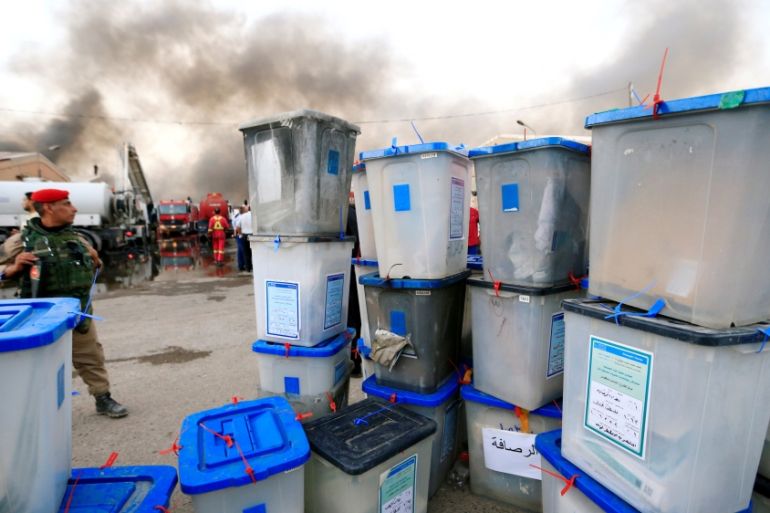Iraq Supreme Court ratifies result of May vote
Many Iraqis, including those from the Kurdish and Sunni Arab communities, had complained of electoral misconduct.

Iraq’s Supreme Court has ratified the results of the country’s May parliamentary election, setting in motion a 90-day constitutional deadline for the top parties to form a coalition government.
|
|
A nationwide recount of votes showed on August 10 that populist Shia leader Muqtada al-Sadr retained his lead, positioning him to play a central role in the government negotiations.
Keep reading
list of 4 itemsIraq PM asked to resign amid Basra unrest
Iraq vows ‘severe’ response after attack on Iran consulate
Deadly Basra clashes as government office torched
Many Iraqis, including Kurdish and Sunni Arab groups, had disputed the results of the vote, alleging widespread electoral misconduct.
In June, a huge fire destroyed a warehouse housing boxes containing ballots from the May 12 vote.
Iraqi officials, including Prime Minister Haider al-Abadi, said that the blaze was started deliberately with the aim of harming the country’s democracy.
The fire came just days after parliamentarians ordered the recount of all 11m of the votes cast.
MPs also sacked the nine-member independent electoral commission that oversaw the process and replaced the body with judges.
The recount did not change the number of seats Sadr’s bloc won. According to the commission, only one seat from Iraq’s Baghdad Coalition had moved to the second-placed Al-Fatih bloc, giving it 48 instead of 47 assembly seats.
A coalition government needs a majority of parliamentary seats – at least 165 out of a total of 329.
As things stand, Sadr’s Sairoon Alliance – which brings together his Sadrist movement and the Iraqi Communist Party – would have the most with 54.
Abadi’s bloc – once seen as a frontrunner – came in third, with just 42 seats.
On June 13, Sadr, who opposes Iranian involvement in Iraq, and Hadi al-Amiri – leader of the Iran-backed al-Fatih bloc, which is part of a Hashd al-Shabi-led coalition – announced a surprise alliance in Najaf.
Ahmed al-Assadi, a spokesperson for Fatih, however told Al Jazeera in August that an official partnership has not yet been reached, saying instead that the alliance announced in June only amounts to preliminary talks.
He said the group is in discussions with all political parties equally.
Incoming MPs will now hold a first session to elect a new assembly speaker. Within 30 days of that first session, the assembly will elect – by a two-thirds majority – the country’s next president.
The president will then task the largest bloc in parliament with drawing up a government, which must be referred back to parliament for approval.